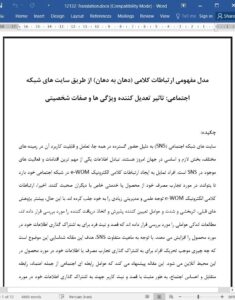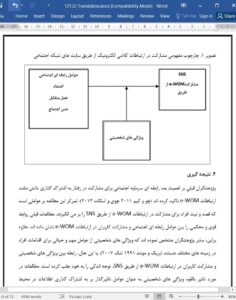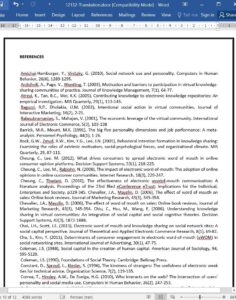ABSTRACT
Social network sites (SNSs) have become an essential part in today’s world due to its ubiquities, interactivity and its applicability in different contexts. Information exchange is one of the most important practices on SNSs. Individuals tend to generate electronic word of mouth (e-WOM) in their social network to tell others about their consumption experiences with specific product or service. Only in recent time, e-WOM communication has serious academic and managerial attention. However, most of prior researches have examined e-WOM effectiveness, intensity and receiver adoption determinants, few studies have investigated the factors that enhance individual’s intention to share their related-product information. With regard to the different nature of SNSs this paper aims to detect what drive individuals to share their consumption experience or product related-information in such online environment. The paper proposes that social relational factors; trust, reciprocity, and sense of community are positively associated with user’s intention to share their related-product information in form of e-WOM through SNSs. The study also proposes that individuals’ personality traits moderate the relationship between social relational factors and intention to share e-WOM through SNSs.
4. CONCLUSION
Prior researchers have emphasized the importance of the relational dimension of social capital to the engagement in knowledge sharing behavior such as e-WOM communication (Chu and Kim, 2011; Choi and Scott, 2013). The focus of this study is on the factors that motivate individuals’ intention to engage in e-WOM communication through SNSs. Previous studies have shown strong associations between social relational factors and users’ engagement in e-WOM communication. In addition, other researchers have recognized that personality traits are crucial determinants for individuals’ actions in different contexts (Barrick and Mount, 1991; Teng et al., 2007). However, the relationship between personality traits and users engagement in e-WOM communication through SNSs has received almost little attention. Studies on the potential effect of personality traits as influencers to information sharing in online environment would enhance our understanding of the phenomenon. Thus, this paper provides a parsimonious model that contribute in explaining the main role played by personal characteristics in users’ engagement in e-WOM through SNSs.










